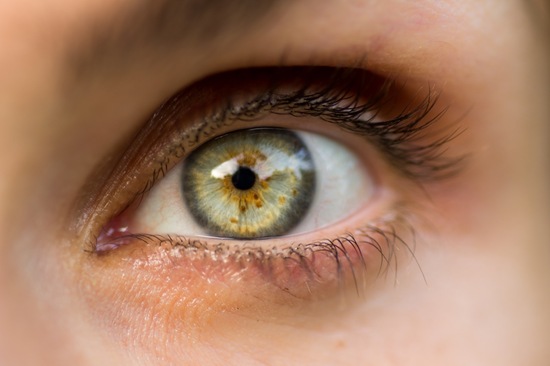 Dr Agathe AOUN is known as @dragatheaoun on Instagram.
Dr Agathe AOUN is known as @dragatheaoun on Instagram.
YOU DESCRIBE MANY DERMATITIS AND ASSOCIATED TREATMENTS, PERSONAL DEVELOPMENT MESSAGES, YOUR DAILY LIFE ETC.
WHERE DID THIS IDEA COME FROM ?
This idea came to me two years ago, when I realized that many patients were coming for certain pathologies that required time to explain, a more global care and unfortunately not often the possibility to do it during a classic consultation. So I told myself that I had to find a more "lively" way than a simple advice sheet, and that's how I opened my Instagram page.
The advantage is that I can post reliable and clear information on certain pathologies (on acne for example), advice (those I give in consultation for example), mistakes to avoid, but also interact with followers and answer their questions.
I also try to be as close as possible to the current demands and questions that come up often through the lives and stories. Finally, I think it's a human tool thanks to which I share a little bit of my daily life and my interests.
DR. AOUN, FROM METROPOLITAN FRANCE TO THE FRENCH OVERSEAS DEPARTMENTS AND TERRITORIES, CAN YOU TELL US ABOUT YOUR CAREER PATH?
First of all, medicine was not a vocation: I ended up in medical school in Paris a little by default, not having had the engineering school I wanted (as fate would have it...). It was only in my third year of university, during an internship in dermatology, that I fell in love with this specialty: both practical and theoretical, covering all types of patients, from children to the elderly, from women to men, from clinic to surgery and including aesthetics.
I then did my internship between Bordeaux and the Antilles-Guyana, a choice I made because I wanted to learn about the specificities of black skin, as I unfortunately had little teaching on the subject in a classical course. I chose Martinique by chance, and became attached to this beautiful island: I have been living here for several years now!
YOUR OFFICE IS LOCATED IN FORT DE FRANCE. WHAT TYPES OF CONSULTATIONS DO YOU OFFER?
I do general, pediatric and surgical dermatology (removal of skin cancers, benign lesions, treatment of keloids...), with a small amount of aesthetic work. My patient base is local, so I see a lot of black and mixed race skin.
YOU MUST HAVE A VERY MIXED PATIENT BASE. DO BLACK, BROWN AND MIXED SKINNED PATIENTS HAVE SPECIFIC SKIN PROBLEMS?
Indeed, in addition to the skin semiology which is not quite identical to that of white skin, there are specificities and pathologies that are more common here: first of all the problem of post inflammatory hyperpigmentation (acne, burns, scars, inflammatory rash, etc...), but also keloids, pseudo-folliculitis of the beard, keloidal acne of the nape of the neck, acro-lentiginous melanoma, traction alopecia...)
IN YOUR OPINION, WHY IS THE EYE AREA A SPECIFIC SKIN ZONE?
This is a very fragile area, where the skin is thinner (you can often see the small vessels through the skin of fair-skinned people!), and therefore requires adapted products because it absorbs the topicals applied differently. In addition, the immediate proximity of the eyes sometimes implies an ocular passage that is not recommended for certain treatments in this area.
DO YOU HAVE PATIENTS WHO CONSULT FOR PROBLEMS ASSOCIATED WITH THE EYE CONTOUR AREA? IF SO, WHICH ONES?
Of course, the eye contour area has its own specific problems: pigmented or sunken dark circles, bags, wrinkles, eyelid eczema, psoriasis, certain autoimmune diseases such as dermatomyositis, etc...
WHY DO YOU THINK, AMONG ALL THE DIFFERENT TYPES OF DARK CIRCLES, BLACK AND DARK SKIN HAVE A HIGH PREVALENCE OF PIGMENTED CIRCLES?
Often there is an undeniable family background (other family members also have dark circles), making treatment all the more delicate. But in addition to the genetic factor, it is the pigmentation characteristic of black skin that accentuates the dark side of dark circles on black skin. Moreover, on mixed race skin, it is not uncommon to have a heterogeneous complexion on the face, as on other parts of the body, due to the "mixing" of pigmentary cells by the mixing.
WHAT ARE YOUR TIPS FOR AVOIDING THE APPEARANCE OF DARK CIRCLES ON A DAILY BASIS?
I will repeat advice that I have already read but which is important:
- Get enough sleep (7-9 hours per night), and a restful sleep
- Avoid stimulants (tea, coffee, alcohol) in the evening or in the afternoon
- When you wake up, rinse your face with fresh water, or even apply cotton pads soaked in water (floral or other) previously put in the freezer on your eyes
- Have a healthy lifestyle (physical activity, balanced diet low in ultra-processed foods and high in fruits and vegetables)
- Drink enough water (1.5 liters is a minimum, especially here where it is hot and humid)
- And if dark circles are still present, there are solutions to fade them: lightening eye cream, sun protection, anti-oxidant serum, or even a peel
 IN ONE OF YOUR INSTAGRAM POSTS, YOU DISCUSS THE TRUST RELATIONSHIP BETWEEN CAREGIVER AND PATIENT. WHY IS IT SO IMPORTANT?
IN ONE OF YOUR INSTAGRAM POSTS, YOU DISCUSS THE TRUST RELATIONSHIP BETWEEN CAREGIVER AND PATIENT. WHY IS IT SO IMPORTANT?
To me it's an integral part of healing and treatment: if you don't trust your caregiver (and I'd say the reverse is also true), you won't follow the prescription and advice given, at least not completely. There is almost a placebo effect in trusting your doctor!
It is precisely also by gaining confidence that one can express one's fears, doubts and choices regarding a prescribed treatment, the goal for the doctor being to get as close as possible to what the patient will be able to apply: the more one listens to him, the more I can adapt my prescription.
There is no judgment on my part, for example, when a patient tells me that she doesn't want a hormone to treat her acne, I hear her and I prescribe another solution, I just take the time to ask her the question beforehand and she knows that she can tell me what she really thinks. That's also why I feel that I should be available at all times if the patient needs it, because they know they can rely on me if they have
 Dr Agathe AOUN is known as @dragatheaoun on Instagram.
Dr Agathe AOUN is known as @dragatheaoun on Instagram.
YOU DESCRIBE MANY DERMATITIS AND ASSOCIATED TREATMENTS, PERSONAL DEVELOPMENT MESSAGES, YOUR DAILY LIFE ETC.
WHERE DID THIS IDEA COME FROM ?
This idea came to me two years ago, when I realized that many patients were coming for certain pathologies that required time to explain, a more global care and unfortunately not often the possibility to do it during a classic consultation. So I told myself that I had to find a more "lively" way than a simple advice sheet, and that's how I opened my Instagram page.
The advantage is that I can post reliable and clear information on certain pathologies (on acne for example), advice (those I give in consultation for example), mistakes to avoid, but also interact with followers and answer their questions.
I also try to be as close as possible to the current demands and questions that come up often through the lives and stories. Finally, I think it's a human tool thanks to which I share a little bit of my daily life and my interests.
DR. AOUN, FROM METROPOLITAN FRANCE TO THE FRENCH OVERSEAS DEPARTMENTS AND TERRITORIES, CAN YOU TELL US ABOUT YOUR CAREER PATH?
First of all, medicine was not a vocation: I ended up in medical school in Paris a little by default, not having had the engineering school I wanted (as fate would have it...). It was only in my third year of university, during an internship in dermatology, that I fell in love with this specialty: both practical and theoretical, covering all types of patients, from children to the elderly, from women to men, from clinic to surgery and including aesthetics.
I then did my internship between Bordeaux and the Antilles-Guyana, a choice I made because I wanted to learn about the specificities of black skin, as I unfortunately had little teaching on the subject in a classical course. I chose Martinique by chance, and became attached to this beautiful island: I have been living here for several years now!
YOUR OFFICE IS LOCATED IN FORT DE FRANCE. WHAT TYPES OF CONSULTATIONS DO YOU OFFER?
I do general, pediatric and surgical dermatology (removal of skin cancers, benign lesions, treatment of keloids...), with a small amount of aesthetic work. My patient base is local, so I see a lot of black and mixed race skin.
YOU MUST HAVE A VERY MIXED PATIENT BASE. DO BLACK, BROWN AND MIXED SKINNED PATIENTS HAVE SPECIFIC SKIN PROBLEMS?
Indeed, in addition to the skin semiology which is not quite identical to that of white skin, there are specificities and pathologies that are more common here: first of all the problem of post inflammatory hyperpigmentation (acne, burns, scars, inflammatory rash, etc...), but also keloids, pseudo-folliculitis of the beard, keloidal acne of the nape of the neck, acro-lentiginous melanoma, traction alopecia...)
IN YOUR OPINION, WHY IS THE EYE AREA A SPECIFIC SKIN ZONE?
This is a very fragile area, where the skin is thinner (you can often see the small vessels through the skin of fair-skinned people!), and therefore requires adapted products because it absorbs the topicals applied differently. In addition, the immediate proximity of the eyes sometimes implies an ocular passage that is not recommended for certain treatments in this area.
DO YOU HAVE PATIENTS WHO CONSULT FOR PROBLEMS ASSOCIATED WITH THE EYE CONTOUR AREA? IF SO, WHICH ONES?
Of course, the eye contour area has its own specific problems: pigmented or sunken dark circles, bags, wrinkles, eyelid eczema, psoriasis, certain autoimmune diseases such as dermatomyositis, etc...
WHY DO YOU THINK, AMONG ALL THE DIFFERENT TYPES OF DARK CIRCLES, BLACK AND DARK SKIN HAVE A HIGH PREVALENCE OF PIGMENTED CIRCLES?
Often there is an undeniable family background (other family members also have dark circles), making treatment all the more delicate. But in addition to the genetic factor, it is the pigmentation characteristic of black skin that accentuates the dark side of dark circles on black skin. Moreover, on mixed race skin, it is not uncommon to have a heterogeneous complexion on the face, as on other parts of the body, due to the "mixing" of pigmentary cells by the mixing.
WHAT ARE YOUR TIPS FOR AVOIDING THE APPEARANCE OF DARK CIRCLES ON A DAILY BASIS?
I will repeat advice that I have already read but which is important:
- Get enough sleep (7-9 hours per night), and a restful sleep
- Avoid stimulants (tea, coffee, alcohol) in the evening or in the afternoon
- When you wake up, rinse your face with fresh water, or even apply cotton pads soaked in water (floral or other) previously put in the freezer on your eyes
- Have a healthy lifestyle (physical activity, balanced diet low in ultra-processed foods and high in fruits and vegetables)
- Drink enough water (1.5 liters is a minimum, especially here where it is hot and humid)
- And if dark circles are still present, there are solutions to fade them: lightening eye cream, sun protection, anti-oxidant serum, or even a peel
 IN ONE OF YOUR INSTAGRAM POSTS, YOU DISCUSS THE TRUST RELATIONSHIP BETWEEN CAREGIVER AND PATIENT. WHY IS IT SO IMPORTANT?
IN ONE OF YOUR INSTAGRAM POSTS, YOU DISCUSS THE TRUST RELATIONSHIP BETWEEN CAREGIVER AND PATIENT. WHY IS IT SO IMPORTANT?
To me it's an integral part of healing and treatment: if you don't trust your caregiver (and I'd say the reverse is also true), you won't follow the prescription and advice given, at least not completely. There is almost a placebo effect in trusting your doctor!
It is precisely also by gaining confidence that one can express one's fears, doubts and choices regarding a prescribed treatment, the goal for the doctor being to get as close as possible to what the patient will be able to apply: the more one listens to him, the more I can adapt my prescription.
There is no judgment on my part, for example, when a patient tells me that she doesn't want a hormone to treat her acne, I hear her and I prescribe another solution, I just take the time to ask her the question beforehand and she knows that she can tell me what she really thinks. That's also why I feel that I should be available at all times if the patient needs it, because they know they can rely on me if they have


